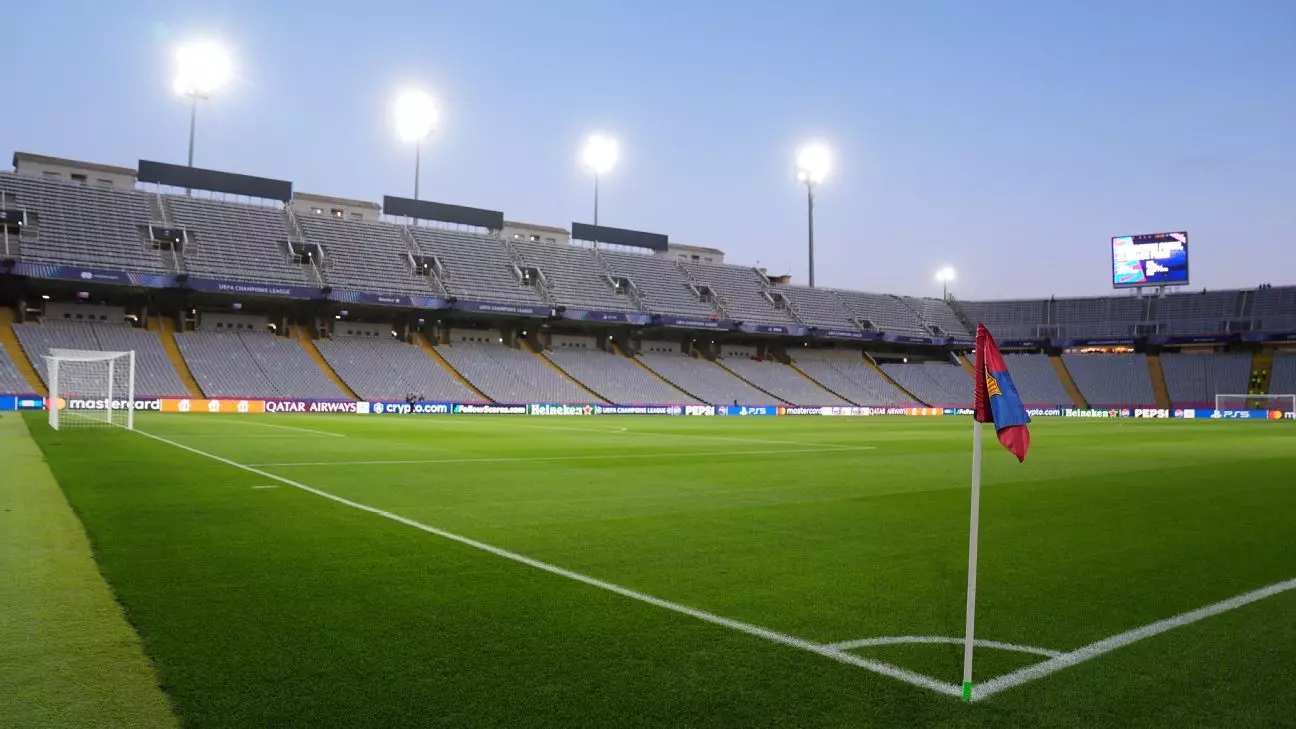Barcelona, a football institution revered for its heritage, is currently facing a turbulent phase exacerbated by tensions between the club’s management and its loyal supporters. A coalition of supporters’ groups, identified as the Espai d’Animació (EDA), has taken a bold stance against the club’s board, asserting that their actions threaten the socio-economic fabric of the club. This discord is not just a passing squabble; it marks a significant moment in Barcelona’s long history, a history that has been dictated by a passionate and politically engaged fan base.
The immediate catalyst for this protest arises from the club’s recent decision to shut down a significant section of the Olympic Stadium—specifically, the area behind one of the goals where the EDA members traditionally gather to cheer on their team. This closure follows the imposition of fines that the supporters have deemed unjust, totaling €21,000 for alleged violations related to chants and stadium behavior. Notably, this suspension has overshadowed monumental occasions, including the club’s 125th anniversary celebrations, prompting the EDA to insist that they feel alienated and sidelined in what should be a joyful acknowledgment of their storied past.
At the heart of the issue lies a profound clash between the values that have long defined FC Barcelona and the newer commercial interests that appear to be guiding the board’s decisions. The EDA, in a statement, lamented how the board seems oblivious to the rich history of loyalty and support that thousands of socios—club members—have exemplified over decades. They are concerned that the current administration is prioritizing a corporate model that severely undermines the club’s soul, fostering an environment devoid of authentic football culture.
The allegations from the supporters highlight a growing discontent with how Barcelona is being reshaped. They are witnessing a stadium filled more with tourists who partake in novelty for a shallow experience rather than the fervent local fans who inject life into the matches. The supporters raise valid points regarding the commercialization of the experience, citing phenomena like the ‘kiss cams’ and meticulously orchestrated entertainment that distract from the essence of the game. It’s apparent that the club is veering away from its roots of passionate, community-driven support.
This growing animosity not only threatens the relationship between the fans and the board but also holds potential implications for team performance. A disconnect exists—fans are the heartbeat of any football team, often providing that extra thrust needed during challenging matches. The EDA’s absence during crucial games, such as the Champions League matches, can be detrimental, as the atmosphere generated by passionate supporters is irreplaceable.
Moreover, the frustrations expressed by the EDA echo broader concerns felt by many supporters across the globe, as clubs transition into commercial behemoths that often redistribute focus away from local identities. If Barcelona’s board does not mend this fractured relationship with its most dedicated supporters, the club risks eroding the very nostalgia that fans cherish. Adhere too closely to commercial interests, and one may find a football club reduced to a mere brand, stripped of the fervent community and soul that have characterized its history.
The EDA’s statements illuminate a crucial juncture for FC Barcelona. There is an urgent need for dialogue between the management and supporters to understand the implications of such decisions on the club’s identity. Stakeholders must engage in meaningful discussions that take into account the concerns raised by the EDA. True progress can only be nurtured within an environment of mutual respect and dialogue rather than punitive measures.
In a time where football clubs all over the world are grappling with similar issues between tradition and modernity, FC Barcelona’s board has a vital obligation to honor the spirit of its fans. Preserving the rich heritage while embracing new opportunities will require a delicate but necessary balance. Without such equilibrium, the threat of losing not just a fanbase, but the essence of what FC Barcelona stands for looms ominously on the horizon.

